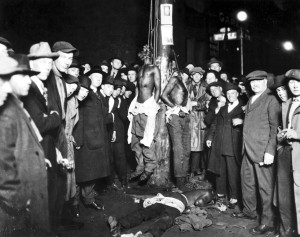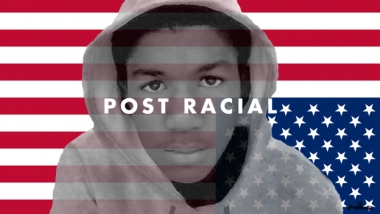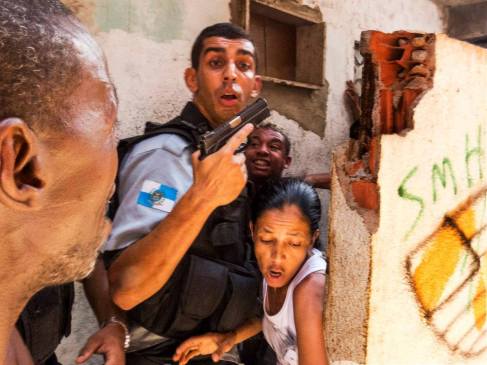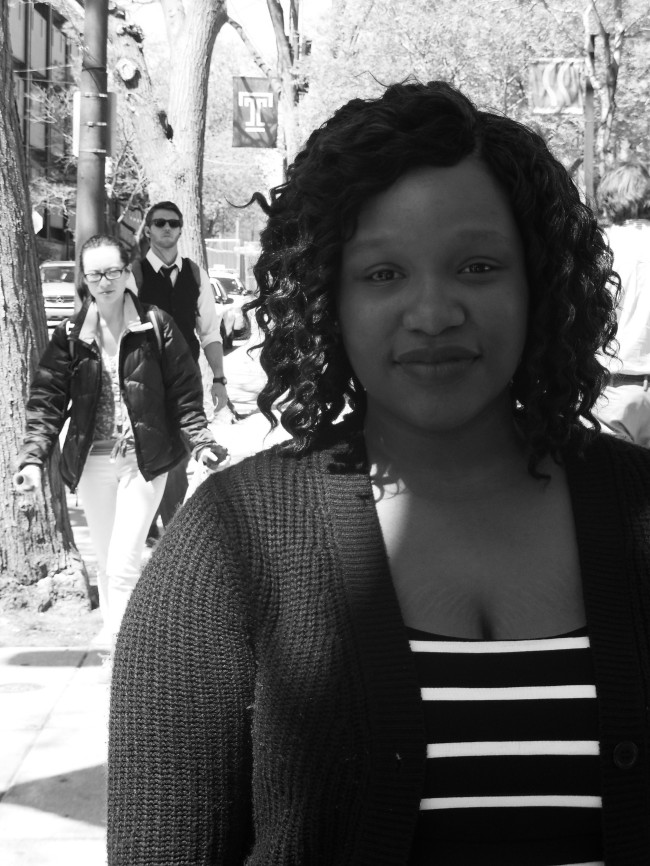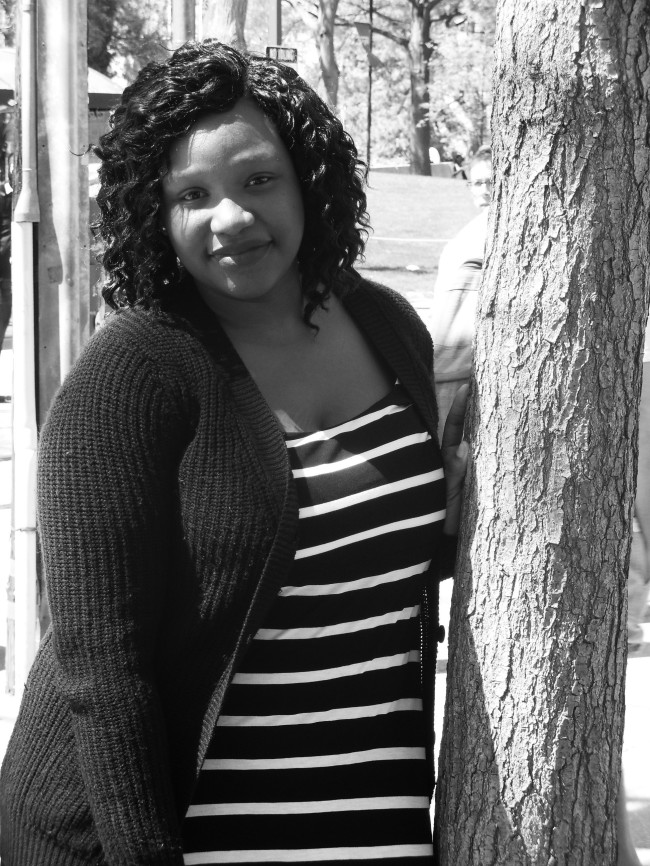I, too, sing America.
I am the darker brother.
They send me to eat in the kitchen
When company comes,
But I laugh,
And eat well,
And grow strong.
Tomorrow,
I’ll be at the table
When company comes.
Nobody’ll dare
Say to me,
“Eat in the kitchen,”
Then.
Besides,
They’ll see how beautiful I am
And be ashamed–
I, too, am America.
-Langston Hughes
Black bodies…Swinging in the southern breeze…
February 26th, 2012. Trayvon Martin: An unarmed 17-year old African-American male was shot fatally by George Zimmerman, in Sanford, Florida, who claimed that Martin was suspicious and possibly armed. Martin was only found to have an Arizona Iced Tea and a bag of Skittles in his possession.
September 14th, 2013. Jonathan Ferrell: A 24-year old unarmed African-American male (and former FAMU football player) seeking help after a car crash, was shot fatally 10 times by Officer Randall Kerrick in Charlotte, North Carolina.
November 2nd, 2013. Renisha McBride: A 19-year old African-American woman, shot fatally by Theodore Wafer, after crashing her car in Dearborn Heights, Michigan. She knocked on Wafer’s door for help. She was unarmed.
November 23rd, 2013. Jordan Russell Davis: A 17-year old African-American male fatally shot by Michael Dunn over loud ‘rap crap’ playing from a Davis’ friends car at a local Jacksonville, Florida gas station.
And in most recent news:
August, 9th , 2014. Mike Brown: An 18-year old unarmed Ferguson, Missouri teenager was shot multiple times by a local police officer, after a supposed scuffle between the officer and two other people.
It is clear by the above fore-mentioned (and the many others not listed, who were unjustly slain, may God rest their souls) that America still does not care about Black bodies. Though Langston Hughes, in one of his most renown poems, brings attention to the notion that Negroes, Blacks, African-Americans are too, America, it is in these very instances that it becomes clear to many African-Americans that being that “too” in this nation is still not the case. Although America should thank those Black bodies who nurtured and built (and continue to build) her terrain, it is in these heinous circumstances of outright bloodshed based on racial and prejudicial pretenses – these modern day lynchings — that being that “too” of America, even in 2014, comes with a price: and that price could ultimately be one’s life.
When I was younger, I remember my mother having an intense conversation with my brother about being a Black man in America. In my innocence and ignorance, I could not understand for the life of me, why my brother (especially at his tender age) needed such special attention and guidance on the ‘makings of being a Black man in America.” I remember her vividly, on many occasions – whether it was at the dining room table, in the car, or after church – ingraining cautionary phrases and (now, what I know) words of wisdom into my brother about his status of being a man of deep melanin.
She would tell him:
“If you ever get pulled over, son, place both hands on the steering wheel. Don’t make any sudden movements. Only do what the officer tells you to do, when they tell you to do it.”
“Son, try not to be out too late in the streets. The police are watching. You may not be doing anything, but they will still deem you suspicious. I know when you are grown, you will do what you want to do, but always be watchful of your surroundings and who you are with.”
“Don’t wear your hat backwards or have your hood on in the store.”
“As a Black man, son, you have to be extra careful. You are a Black man, and that is the first thing that anyone will see. They don’t care about how well you do in school, or if you are a state-champion in track. All they care about is that you are Black and that you are a man.”
My mother exasperated my brother with advice and lessons such as these, and also stories from the news and from her childhood about what it meant for my brother to Black in America. These ‘race lessons‘ were repeated like clockwork — it was almost like his homework, as my brother repeated time after time what my mother had taught him to do if he were ever to get pulled over or stopped by police officers. She was teaching, preparing and equipping him with these lessons – hoping to ensure that his life would not become the ultimate example.
At the time, my brother, did not fully comprehend what my mother was trying to teach him, but he was forcibly hit with the reality when he was pulled over by police officers in our hometown. He was walking a friend home, and his friend happened to be White. They frisked him and patted him down, while asking his friend whether she was okay or if he had bothered her. They claimed that he looked like a suspect that robbed a local Rite Aid – which is over a mile away from our home.
This was his first, and unfortunately not his last time, being wrongfully accused by a racially motivated law enforcement.
It is a shame that in contemporary times, that this type of cautionary rhetoric must given to Black men, but just like the stories from and of our ancestors, this advice has been passed down from generation to generation. Just as my grandmother told her sons, and my mother told my brother, I will eventually have to tell my son what it means to be a Black man in America. But, my mother’s advice and the advice of many parents of Black youth should (and does) not start and stop with just Black men, but Black women, too — as all Black bodies, regardless of gender, are susceptible to be targets.
Take for instance, what unfortunately happened to a 51-year old California woman who was beaten mercilessly by a California Highway Patrol officer along the Santa Monica freeway, and her assault was recorded by a passing motorist. Also, as mentioned above, the incident concerning Reneisha McBride, who was fatally shot, after knocking on a door for help after surviving a car crash.
And these women too, were also unarmed.
There are many questions to be asked: When will “we” be safe? Our sons and our daughters? Our brothers and sisters? When will we finally have refuge in this very place that was built by our ancestors? When will stop having to tell our children to be careful of every step they take? Will we ever be free of racial profiling and repetitive nature of the slaying of black bodies? Which one of our sons and daughters will be the next Trayvon Martin? ? Jonathan Ferrell? Reneisha McBride? Or Mike Brown?
How many more lessons must the Black community learn from innocent Black bodies?
Langston Hughes’, at the end of his “I, Too” poem wrote:
“Besides,
They’ll see how beautiful I am
And be ashamed—“
When will America truly see how beautiful and valuable Black bodies are and be yet ashamed?
Or will it continue to see the value of our Blackness, only when we are hanging?
